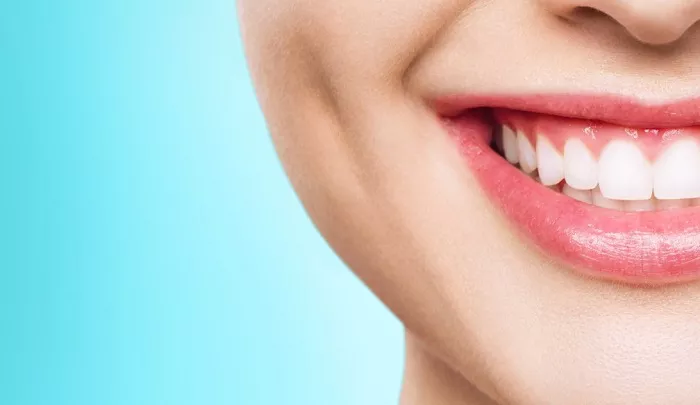Teeth whitening is one of the most sought-after cosmetic dental treatments in Texas, offering a way to brighten smiles and boost confidence. If you are considering teeth whitening, understanding the types of treatments available, their costs, benefits, and potential side effects is essential. This guide covers everything you need to know about teeth whitening in Texas.
What Is Teeth Whitening?
Teeth whitening is a cosmetic dental procedure designed to lighten the color of your teeth and remove stains or discoloration. It works by applying bleaching agents, usually hydrogen peroxide or carbamide peroxide, to the enamel.
These agents break down stains caused by food, drinks, smoking, or aging, making teeth appear whiter and brighter.
Whitening treatments can be done professionally by a dentist or at home using over-the-counter products. Professional treatments generally use stronger bleaching agents and provide faster, more noticeable results.
Types of Teeth Whitening Treatments
There are several teeth whitening options available, each with different methods, effectiveness, and costs:
In-Office Whitening: This professional treatment is done at a dental office using high-concentration bleaching agents, often combined with light or laser activation. It typically takes about an hour and offers immediate results. The cost usually ranges from $300 to $800 in Texas.
Professional At-Home Whitening Kits: Dentists provide custom-fitted trays and professional-grade whitening gel for home use. This method takes longer (a few weeks) but offers controlled and effective whitening. The cost ranges from $150 to $600.
Over-the-Counter Whitening Products: These include whitening strips, gels, and toothpaste available without a prescription. They contain lower concentrations of bleaching agents and may take longer to show results. These are the most affordable but less effective and not tailored to individual needs.
Laser Teeth Whitening: A specialized in-office procedure using laser light to accelerate the bleaching process. It is more expensive, typically costing between $500 and $1,000 per session.
Factors Influencing Teeth Whitening Costs
Several factors affect how much you will pay for teeth whitening in Texas:
Type of Whitening Treatment: Professional in-office treatments and laser whitening are more expensive than at-home kits or OTC products due to stronger agents and expert supervision.
Dental Office Location: Costs may be higher in urban areas like Houston, Dallas, or Austin compared to smaller towns.
Extent of Discoloration: Severe staining or discoloration may require more sessions or stronger treatments, increasing the cost.
Dental Health Status: If you have dental issues such as gum disease, cavities, or swollen gums, these must be treated before whitening, which can add to overall expenses.
Brand and Technology: Some whitening systems use advanced technology or proprietary formulas that may cost more but offer longer-lasting results.
Additional Treatments: Sometimes, dentists recommend combining whitening with other cosmetic procedures, affecting the total cost.
Teeth Whitening Costs in Texas
The cost of teeth whitening in Texas varies depending on the type of treatment, the dental office, and the location within the state. Here is a breakdown of typical costs:
| Treatment Type | Average Cost Range (Texas) |
| In-Office Whitening | $300 – $800 |
| Laser Teeth Whitening | $500 – $1,000 |
| Professional At-Home Kits | $150 – $600 |
| Over-the-Counter Products | $20 – $100 |
Prices may vary based on the dental practice, the whitening system used, and any additional services included.
Benefits of Professional Teeth Whitening in Texas
Choosing professional teeth whitening offers several advantages:
Expert Evaluation: Dentists assess your oral health, including checking for gum disease or swollen gums, ensuring whitening is safe and appropriate.
Customized Treatment: Professional whitening is tailored to your teeth’s needs, maximizing effectiveness while minimizing risks.
Faster and More Noticeable Results: Higher concentrations of bleaching agents provide quicker and more dramatic whitening.
Safety Measures: Dentists protect your gums and enamel during treatment, reducing the risk of irritation or damage.
Longer-Lasting Effects: Professional treatments often provide results that last longer than over-the-counter products.
Addressing Underlying Issues: Dentists can identify and treat dental problems like cavities or gum disease before whitening, ensuring better overall oral health.
Potential Side Effects of Teeth Whitening
While teeth whitening is generally safe, some side effects may occur, especially if treatments are misused or if you have pre-existing dental conditions:
- Tooth Sensitivity: This is the most common side effect, caused when bleaching agents penetrate the enamel and irritate the dentin. Sensitivity to hot, cold, or sweet foods may last a few days.
- Gum Irritation: Whitening gels can irritate gums, causing redness or swelling, especially if you have swollen gums or gum disease. Dentists use protective barriers to minimize this risk.
- Enamel Damage: Overuse or aggressive whitening can weaken enamel, increasing the risk of tooth erosion or decay.
- Uneven Whitening: Dental restorations like crowns or veneers do not whiten, which can cause color mismatches.
- Inflammation or Pain: In rare cases, bleaching agents can cause inflammation inside the tooth or discomfort if applied improperly.
- Other Risks: Swallowing bleaching agents can irritate the throat or stomach, so care must be taken during treatment.
Most side effects are temporary and resolve within a few days. It is crucial to consult a dentist before whitening, especially if you have swollen gums, gum disease, or sensitive teeth.
Conclusion
Teeth whitening in Texas offers an effective way to enhance your smile and confidence. Costs vary widely depending on the treatment type, location, and your dental health. Professional whitening provides the safest, fastest, and most reliable results but comes at a higher price compared to over-the-counter options.
Before deciding on teeth whitening, it is essential to have a dental check-up to address any issues like gum disease or swollen gums that could affect treatment safety. Understanding the benefits and potential side effects will help you make an informed choice and achieve the best results for a brighter, healthier smile.

